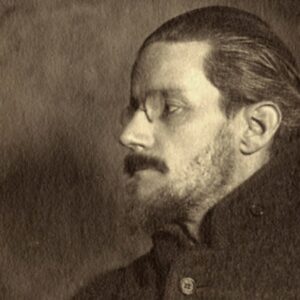How Settlers Convinced Themselves They Were the First Owners of America
Michael Heller in Conversation with Andrew Keen on Keen On
The coronavirus pandemic is dramatically disrupting not only our daily lives but society itself. This show features conversations with some of the world’s leading thinkers and writers about the deeper economic, political, and technological consequences of the pandemic. It’s our new daily podcast trying to make longterm sense out of the chaos of today’s global crisis.
In this episode, Andrew is joined by Michael Heller, the co-author of Mine!, to discuss the moral and legal intricacies of ownership, as well as to investigate how the parameters that define what property is have changed over time.
From the episode:
Michael Heller: This is one of the hardest pieces, for me always as a professor, to get across to my law students. They think that “first” is an empirical fact. First is “Native Americans were here first.” But that’s not the way ownership works. First is a story. And in that story, we are always deciding who counts as first and what activities count as first. So when America was being claimed, what the law did is define what it means to be first, is to chop down trees, to plant in rows, to build fences. That’s what it meant to be first.
Andrew Keen: And that’s maybe not the Hobbesian but certainly the Lockean notion of land and production. Is that fair?
Michael Heller: Absolutely right. Early American settlers thought a lot about Locke. This was a very important thinker in that 18th-century milieu. It is very much the case that “first” is up for grabs, just like possession is. These are stories that we tell. They’re stories that kids tell, they’re stories that grownups tell, to figure out who gets what. And it’s important to understand how those stories can be turned upside down to achieve particular goals. Treading lightly through the forest, which is the image that many anthropologists had, not totally correct, about Native Americans, that didn’t count as first, it didn’t count as possession, it didn’t count as labor. What counted as first possession and labor was to make New England look like Old England. So it’s fairly easy for the settlers to convince themselves that they were the first owners of America.
________________________
Subscribe now on iTunes, Spotify, Stitcher, or wherever else you find your podcasts!
Michael Heller is the Lawrence A. Wien Professor of Real Estate Law at Columbia Law School. He is the author of The Gridlock Economy: How Too Much Ownership Wrecks Markets, Stops Innovation, and Costs Lives.




















